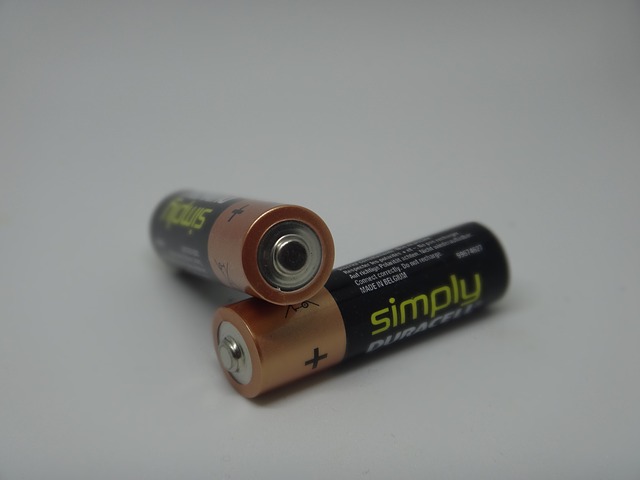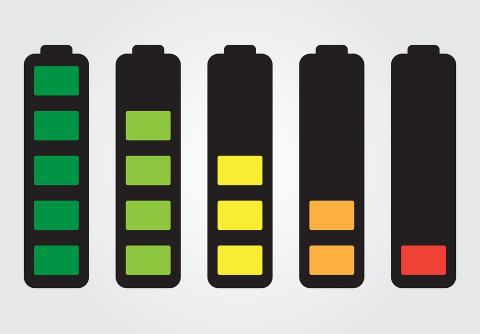How Recyclable Are Lithium-Ion Batteries?
Mar 17, 2020 Pageview:769
Even though lithium batteries came into being in 1985, it is only recently that we have seen unprecedented growth in their applications and demand. Almost every device has them, including toy cars and e-cars.
Increased demand means that we have more lithium-ion batteries discarded than ever. You might wonder where you should dispose of your old or faulty batteries, and whether you can recycle them for a greener Earth.
Read on to find out more about the disposing and recycling of Li-ion batteries.
1.How Recyclable Are Lithium-Ion Batteries?
Lithium-ion batteries are recyclable, where the main aim is to recover the precious metals in them. This includes lithium, nickel, manganese, and cobalt.
As of 2020, the best technology available can help recover and recycle up to 80% of the material found in a typical Li-ion battery. However, this percentage differs between different types of batteries.
However, it is challenging to recycle them because of their chemical makeup. A lot of the technology used to do so is very expensive, and the machines required cost tens of millions of dollars.
Up until recently, there was little focus on recycling lithium batteries in general. Companies were instead worried about making them safer, more affordable, and increase charge capacity.
Today, many compelling reasons have caused many companies to invest in recycling lithium-ion batteries. These include:
● It is cheaper to extract lithium, cobalt, manganese, and nickel from waste batteries than it is to extract it from the ground.
● Precious metals, such as lithium and cobalt, are limited resources. Therefore, global consumption is likely to deplete available reserves. Recycling them is a sure way to make them last longer.
● Waste lithium batteries are hazardous and are prone to causing fires in landfills and other waste handling facilities. Recycling is a safer way to dispose of and recycle them.
● It is more environmentally friendly. Lithium-ion batteries can leak poisonous chemicals and metals that poison the soil in landfills. Recycling takes care of these chemicals more ethically.
● By reducing the extraction of ores in the Earth, recycling lithium-ion batteries helps preserve the environment in the mining zones.
Due to these, there have been massive efforts to recycle lithium batteries, especially in Asia, Europe, and the US.
In 2018, 97000 metric tonnes of lithium-ion batteries were recycled in different companies around the world. That is against a global production of 150 million tonnes.
There are a few reasons why only 0.06% of lithium-ion batteries produced these include:
● Lithium-ion batteries now have longer life spans, where many can be expected to last ten or more years.
● The logistics involved with collecting and transporting old lithium-ion batteries safely and affordably are a nightmare.
● Most consumers do not take the initiative to present old batteries at appropriate recycling centers.
● The cost of building recycling factories, hiring the talent to manage them, and running them is prohibitive.
Newer technology is being developed around the world to make recycling lithium batteries easier and more cost-effective.
2.Are Lithium-Ion Batteries Environmentally Friendly?
In general terms, lithium-ion batteries are less toxic to the environment. Compared to lead/acid batteries or similar options, they rank higher on environmental friendliness.
The key lies in how they are handled. Lithium-ion batteries are manufactured to exacting safety standards. If they are correctly handled between manufacturing and recycling, the impact on the environment is little.
However, what makes them bad for the environment is the process of extracting their components from the Earth, manufacturing them, as well as the toxicity of the same parts if they are not correctly disposed of.
Lithium-ion batteries pose a few significant environmental hazards.
● The major components used in li-ion batteries are lithium, cobalt, and nickel. These are extracted from the Earth in substantial open-pit mines, which severely degrade the environment.
● Processing of the same metals in factories poses a significant health risk to anyone exposed to them. They are associated with major respiratory, pulmonary, and respiratory problems.
● If disposed of in the trash, these metals and chemicals used as electrolytes can leak into the ground. They contaminate the soil, groundwater, as well as plants or animals which feed on them.
This is why the recycling of lithium-ion batteries is vital. It helps address all these problems. Additional measures can also be taken to reduce the environmental impact of Li-ion batteries. These include:
● Increasing the service life of such batteries.
● Providing incentives and making it easier for consumers to return old batteries for recycling.
● ‘Refurbishing’ of old batteries to give them new life.
While a major part of protecting the environment from the effects of Lithium-ion batteries lies with the manufacturers, consumers also have a major say. One of these is through returning all old, damaged, or unused lithium-ion batteries for recycling.
3.Where Can You Recycle Lithium-Ion Batteries?
If you want to play your part in protecting the environment, we will let you know how and where to take your lithium-ion batteries for recycling.
Unfortunately, logistics remain an issue, so recycling centers are not as widespread as they should be.
If you are in the US:
Contact Call2Recycle through 1-877-723-1297 or email them at customercare@call2recycle.org for information on a recycling area near you. Alternatively, visit the Call2Recycle website here.
The organization has thousands of drop-off locations that include Lowe's and Home Depot stores.
In China:
Government regulations require the battery manufacturer to institute its own waste battery collection system. Contact the manufacturer of your battery for this information.
In Japan:
Nippon, one of the largest recyclers of various types of batteries, has different collection systems. If your waste collectors don’t have a system in place to collect such batteries for recycling, get yours to a Japan Rechargeable Battery Recycling Center (JBRC) near you.
In most of Europe:
Many countries in Europe have separate collection centers for e-waste and batteries. If you don’t find one, contact your local waste collection company or the European Battery Recycling Association.
Do And Don'ts Of Recycling lithium-ion batteries
Remove batteries from devices.
Insulate exposed terminals to prevent shorting.
Follow UN regulations for damaged or recalled batteries.
Do not dispose of lithium-ion batteries in the regular trash.
Don't mix many batteries unless they are separated adequately with a non-conductive material
Don’t pierce or otherwise attempt to destroy batteries yourself.
Final Words
Lithium-ion batteries are very useful in today's world. As global demand increases, we need to take steps to ensure the sustainability of using them.
This guide on recycling lithium-ion batteries will help you make better decisions that will benefit our environment.
- Prev Article: Medical Lithium Ion Battery Recycling -Recycling Methods and Cycle Life
- Next Article: How To Balance Lithium-Ion Batteries?
Leave Message
Hottest Categories
-
Hottest Industry News
-
Latest Industry News














